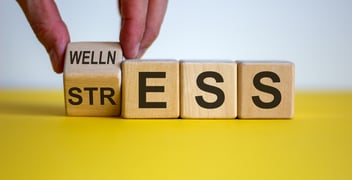
A middle-aged attorney and his comedian wife were driving past some basketball courts filled with young, sinewy, aggressive players when he wistfully exclaims, "You know, I could've gone pro." "Pro what?" she asks incredulously, "Pro-bono?"
As most of you reading this article already know, your dreams of being a professional athlete someday will only be just that: dreams. Chances are high that if you’re reading this article you’re already past your favorite sport’s prime age. For basketball, the peak age is 26. For swimming the peak is 21. It’s between 27 and 30 for baseball. Basically, by 31, most athletes' best days are in the past. Sorry to break it to you.
Mindfulness and development of the adult mind
However, while the body’s prime years of strength and flexibility peak quite young, recent research (http://news.mit.edu/2015/brain-peaks-at-different-ages-0306 and https://www.entrepreneur.com/article/244288) tells us that the mind continues to excel in many capacities (such as vocabulary and reading of emotional facial cues) well into the 40s and beyond. Chances are pretty good, then, that your mind is still hovering around its peak. If not, there are ways to sharpen it. Recent advances in fMRI research have revealed that our brains maintain a degree of neuroplasticity into late adulthood. And that means that the brain can develop new skills and better patterns of responding to life.
Twentieth-Century psychologist Jean Piaget (1896 - 1980) advanced a notion that still has wide acceptance today: human cognitive development has four distinct stages.
- The sensorimotor stage is first, from birth to age 2. In this stage, babies and toddlers learn about the world through their five senses.
- Next, in the pre-operational stage, from age 2 to about age 7, kids learn through role-play but they operate on intuition not logic.
- Then comes the concrete operational stage, from age 7 to 11, in which logical thinking emerges.
- Finally, the formal operational stage begins at around age 11 and continues into early adulthood. In this phase the mind begins to work with sophisticated logic and abstract thinking. By age thirty, however, the mind has hit its peak and begins to decline, according to Piaget’s model.
Throughout all of these four stages, the mind develops through its interaction with the external world. And for a long time, scientists believed that the story of brain development ended there. Recently though, the scientific world is realizing that interaction with the internal world (the world of the mind itself through mindfulness) can help the brain continue developing well into the later adult years. (This Huffington Post article is a great jumping-off point for further reading.)
Piaget understood that cognitive development is not about quantitative change – a matter of how much we know – it is about qualitative change – a transformation in the way we think. Mindfulness is both a change in the way we think and the means by which we change the way we think. There is a great deal of research on how mindfulness helps the brain, and I would argue that it can help lead us into what I would call a “fifth stage” of cognitive development, one that can improve our thinking and understanding in the present and well into our sunset years.
Unlike the four stages of cognitive development which Piaget thought happened naturally (i.e. without the conscious intention of the individual), mindfulness requires us to actively pursue it. Just like developing the muscles and skill to play professional sports, the benefits of mindfulness derive from dedication to the training of the mind (eg. daily meditation and mindfulness breaks or activities throughout your day.**
Remember that while you're likely past your prime to develop a career in professional sports, your brain can continue its development which will yield tremendous benefits to your work and relationships. Consider the importance of logic and abstract thinking in your career success. What else can you add to your mental arsenal or toolkit to keep growth going?
--
** For further details on how to develop a mindfulness practice, see my quick-start guide.





